Lipton
 |
|
| Owner | Unilever |
|---|---|
| Country | Scotland |
| Introduced | 1890 |
| Markets | Tea |
| Website | http://www.lipton.com |
Lipton is a brand tea currently owned by Unilever.
Contents |
History
Lipton was created at the end of the 19th century by Sir Thomas Lipton in Glasgow, Scotland. His enterprise soon flourished and he established a chain of grocers, first across Glasgow, then the rest of Scotland, until finally he had stores throughout Britain.
Under the slogan "direct from the tea gardens to the tea pot", Lipton wanted to make tea a popular and approachable drink for everyone.
In 1929, the Lipton grocery retail business was one of the companies that merged with Home and Colonial Stores to form a food group with over 3,000 stores. The group traded as Home and Colonial Stores until 1961 when it took the name of Allied Stores.[1]
Lipton's became a supermarket chain focused on small towns, before Allied's 1982 acquisition by Argyll Group: the supermarket business was rebranded as Presto during the 1980s.
Meanwhile, the Lipton tea business was acquired by consumer goods company Unilever in a number of separate transactions, starting with the purchase of the US and Canadian Lipton business in 1938 and completed in 1972 when Unilever bought the remainder of the global Lipton business.
In 1991, Unilever created a first joint venture with PepsiCo, the Pepsi Lipton Partnership, for the marketing of ready to drink (bottled and canned) teas in North America. this was followed by a second joint venture, Pepsi-Lipton International (PLI) in 2003, covering many non-US markets. PLI was expanded in September 2007 to include a number of large European markets. PepsiCo and Unilever each control 50% of the shares of these joint ventures. [2]
Due to the 2008 Chinese milk scandal, food giant Unilever started recalling its Lipton milk tea powder in both Hong Kong and Macau on 30 September 2008. The tea powder which used Chinese milk powder as its raw ingredient was recalled after the company's internal checks found traces of melamine in the powder.[3][4]
Lipton today

Products target the mass market and are generally positioned in the middle of the price spectrum for tea. . The company's Lipton Institute of Tea researches tea's various health and mental benefits, as well as tea growing, processing and tasting. Unilever/.
Like most branded teas, Lipton teas are a blend selected from many different plantations around the world, from well-known producing countries like India, Sri Lanka, Kenya, and China. Lipton Yellow Label is blended from as many as 20 different teas[5] in specialized tasting rooms in seven regional hubs scattered all over the world.
Apart from black leaf teas (with the long-standing Lipton Yellow Label brand), the company also markets a large range of other varieties, both in leaf tea as well as ready-to-drink format.[6] These include green teas, black flavoured teas, (herbal) infusions, Lipton Linea (a 'slimming tea') in Europe and Lipton Milk Tea in various Asian markets. Apart from Lipton Ice Tea, none of their products are available for retail in the UK as only caterers are supplied.
In a number of markets, including Japan, Russia and Australia, the company is advertising the benefits of theanine (which is naturally present in its teas), which is said to have psychoactive properties.
Lipton and sustainability
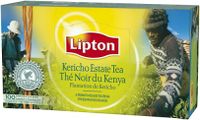
Lipton's own plantations in East Africa ( Kenya (Kericho) and Tanzania (Mufindi) ) and third-party tea estates have been working together since 2002 to ensure compliance with the Unilever sustainable agriculture guidelines and the Ethical Tea Partnership criteria. The plantations were recognized by the Global Business Coalition for their fight against AIDS in 2006.[7]
In May 2007, Unilever became the first company to commit to sourcing all its tea in a sustainable manner.[8]. Toward that end, the company asked the Rainforest Alliance, an international environmental NGO, to start certifying tea estates in East Africa. Lipton and its parent company, Unilever, announced they aim to have all Lipton Yellow Label tea bags sold in Western Europe certified by 2010 and all Lipton tea bags sold globally by 2015. [9] Lipton's own tea estates were among the first to be certified.[10][11] In February 2008, a new advertising campaign was launched in various countries in Western Europe to announce the use of Rainforest Alliance certified tea in its flagship product, Lipton Yellow Label. In early 2009, Lipton products bearing the Rainforest Alliance seal started appearing in North America as well. [12][13]
On 6 May 2009, Lipton received a Corporate Green Globe Award for its work with the Rainforest Alliance. [14]
In 2009 National Geographic visited Lipton's tea estate in Kericho, Kenya and published a number of videos and articles about Lipton's partnership with the Rainforest Alliance and the impact of certification on farmers and workers. [15]
Brands
Lipton's main pillar brands are Lipton Yellow Label and Lipton Iced Tea. Other product lines exist as well, like the Lipton pyramid range in Europe and North America, and Lipton Milk Tea in East Asia. In 2008 the brand launched Lipton Linea in Western Europe, a green tea variety with a higher level of catechins, which the company claims can help one lose weight. [16]
Lipton Yellow Label
Lipton Yellow Label has been sold since 1890, when Sir Thomas Lipton created the first version of the Yellow pack with a red Lipton shield, which to this day typifies the Lipton Yellow Label brand. It is sold in 150 countries worldwide. [17]. Lipton Yellow Label is a blend, meaning that up to 30 teas from many different origins are blended together to create a consistent quality and taste. [18]
Lipton Yellow Label blend is available both in tea bags, the preferred format in Western Europe, North America and Australia, a well as loose packaged tea, the preferred format in much of the Middle East and throughout Asia.
In 2008 Lipton Yellow Label became the first tea globally to bear the Rainforest Alliance Certified Seal on pack. [19]
In April 2010, a new global advertising campaign for Lipton Yellow Label was launched, featuring the well-known composer Lalo Schifrin composing his famous tune for the Mission: Impossible TV series. [20]
Lipton Iced Tea

Lipton Iced Tea, in many markets known as Lipton Ice Tea, is an iced tea brand sold by Lipton through two joint ventures with PepsiCo. The operations are 50-50 ventures, in which PepsiCo contributes its bottling facilities and distribution networks and Unilever the brand (Lipton) and recipe. [21]
There is a variety of flavors sold throughout the world. In the United States, it is marketed in 16 oz (448ml) bottles with the following flavors:
Lipton Pyramid Teas
These pyramid shaped bags were pioneered by Lipton and provide more room for infusion of the leaves, delivering faster and better infusion. Different flavours are available in different markets but they include
|
|
Lipton worldwide
Available in over 110 countries, Lipton is particularly popular in Europe, North America and the Middle East, parts of Asia and Australasia (Australia and New Zealand).
 Afghanistan
Afghanistan Australia
Australia Austria
Austria Bahrain
Bahrain.svg.png) Belgium
Belgium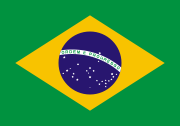 Brazil
Brazil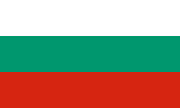 Bulgaria
Bulgaria Canada
Canada Chile
Chile China
China Colombia
Colombia Costa Rica
Costa Rica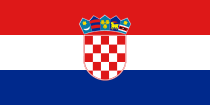 Croatia
Croatia Denmark
Denmark Estonia
Estonia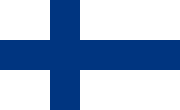 Finland
Finland France
France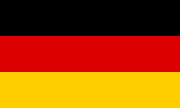 Germany
Germany Greece
Greece Hong Kong
Hong Kong Hungary
Hungary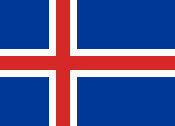 Iceland
Iceland India
India Indonesia
Indonesia Italy
Italy Kuwait
Kuwait Latvia
Latvia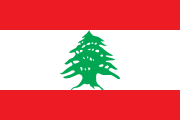 Lebanon
Lebanon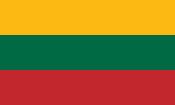 Lithuania
Lithuania Macau
Macau Malta
Malta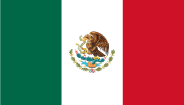 Mexico
Mexico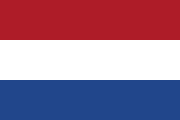 Netherlands
Netherlands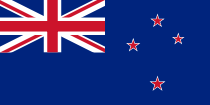 New Zealand
New Zealand Norway
Norway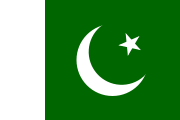 Pakistan
Pakistan Philippines
Philippines Poland
Poland Portugal
Portugal Qatar
Qatar Republic of Korea
Republic of Korea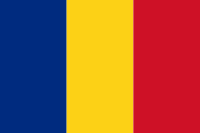 Romania
Romania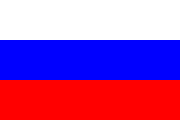 Russia
Russia Saudi Arabia
Saudi Arabia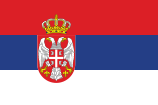 Serbia
Serbia South Africa
South Africa Spain
Spain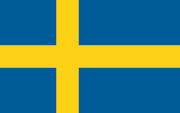 Sweden
Sweden Thailand
Thailand Turkey
Turkey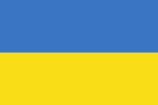 Ukraine
Ukraine United Arab Emirates
United Arab Emirates United Kingdom
United Kingdom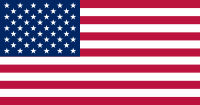 United States
United States
and more...
See also
- Lipton Institute of Tea
- Tetley, competitor
- Dilmah, competitor
- Brooke Bond, another Unilever tea brand
- PG Tips, another Unilever tea brand (UK)
- Lyons, another Unilever tea brand (Ireland)
- International Reaction to the 2008 Dairy Scandal
References
- ↑ Allied Stores was originally formed in 1929 to act as the group's purchasing arm.
- ↑ PepsiCo and Unilever extend partnership
- ↑ Associated Press. "Lipton-brand milk tea powder recalled in Asia". Yahoo! News. http://news.yahoo.com/s/ap/20080930/ap_on_re_as/as_hong_kong_tainted_milk. Retrieved 2008-09-30.
- ↑ AP (2008-09-30). "Lipton milk tea powder recalled in Hong Kong". USA Today. http://www.usatoday.com/money/industries/food/2008-09-30-liptontea-hongkong_N.htm?csp=34. Retrieved 2008-09-30.
- ↑ Blending Reference http://www.time-for-tea.com/producing.asp
- ↑ Fabricant, Florence (2006-09-13). "Brewing for the True Believer; Tea's Got a Brand New Bag". The New York Times. http://select.nytimes.com/gst/abstract.html?res=F40C10FA3E550C708DDDA00894DE404482. Retrieved 2010-05-07.
- ↑ GBC http://www.businessfightsaids.org/site/apps/nl/content2.asp?c=gwKXJfNVJtF&b=1008905&ct=2488343
- ↑ Article in San Diego Times" http://www.signonsandiego.com/news/business/20070525-0857-tea-unilever-sustainable.html
- ↑ Unilever Announcement http://www.unilever.com/ourcompany/newsandmedia/pressreleases/2007/sustainable-tea-sourcing.asp
- ↑ Time to brew up a Sustainable Cuppa- The Independent http://news.independent.co.uk/business/analysis_and_features/article3223697.ece
- ↑ Reuters http://investing.reuters.co.uk/news/articleinvesting.aspx?type=consumerProducts&storyID=2007-05-25T170334Z_01_N25420184_RTRIDST_0_SP_PAGE_016-N25420184-OISCP.XML
- ↑ Banking on Greener Tea- National Post http://www.nationalpost.com/life/story.html?id=1427753
- ↑ Reuters: Rainforest certified Lipton tea reaches US http://uk.reuters.com/article/behindTheScenes/idUKTRE5457WX20090506
- ↑ Leaders in sustainability honored at Rainforest Alliance Gala http://www.rainforest-alliance.org/news.cfm?id=gala09_honorees
- ↑ National Geographic: SustainabiliTea http://www.nationalgeographic.com/liptonsustainabilitea/
- ↑ Lipton Linea website http://www.liptonlinea.com/
- ↑ Lipton's History http://www.lipton.com/en_en/#Lipton%20history-0,68
- ↑ The art of tea blending http://www.lipton.com/en_en/#The art of tea blending-0,70
- ↑ Press release Rainforest Alliance http://www.rainforest-alliance.org/news.cfm?id=unilever
- ↑ http://popsop.com/34286
- ↑ Unilever and PepsiCo Create 'Pepsi Lipton International' RtD Tea Joint Venture in Selected International Markets http://findarticles.com/p/articles/mi_m0EIN/is_2003_Oct_14/ai_108827922/
External links
- Lipton Tea Global website (select your region)
- Rainforest Alliance website
- Lipton Institute of Tea website
- Lipton Tea & Rainforest Alliance ad on YouTube
- Kath Eats Real Food- visit to Lipton plantation
- Kath Eats Real Food- more info about Lipton plantation
- Treehugger.com: Tea Time
- A world of possibilities- NPR radio interview with Lipton and Rainforest Alliance
- National Geographic Videos about Lipton and Rainforest Alliance
|
||||||||
|
||||||||||||||||||||
|
||||||||